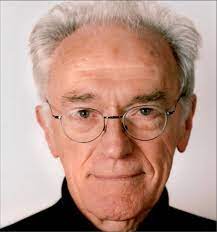Townsend, Peter

Bio: (1928-2009) British sociologist. Peter Townsend has taught at the London School of Economics and the Universities of Bristol and Essex. Townsend has studied poverty throughout his career. He was first focused on poverty in the UK, only to expand research on world poverty in the early 1990s. In the book Poverty in the United Kingdom (1979), Townsend presents the results of a survey on poverty, which was conducted by analyzing two thousand questionnaires, which were given to households from all over Britain in the late 1960s. Respondents provided answers to a large number of questions, and Townsend selected 12 questions that were applicable to the entire population, and through them examined relative population deprivation. He assigned a deprivation index to each household and calculated the level of income below which the share of deprived households rises sharply. Townsend calculated that 23 percent of the population lives in poverty, while official statistics show that only six percent of the population lives in poverty. He concluded that Britain's social security measures are inadequate to prevent poverty.
Townsend believes that it is not enough to observe absolute poverty, but it is necessary to observe poverty in a relative sense. To do so he focused his study on relative poverty and relative deprivation. He defines relative poverty as such:
"Individuals, families and groups in the population can be said to be in poverty when they lack the resources to obtain the type of diet, participate in the activities and have the living conditions and the amenities which are customary, or at least widely encouraged or approved in the societies to which they belong. Their resources are so seriously below those commanded by the average family that they are in effect excluded from the ordinary living patterns, customs, and activities”.
It is a society that determines which needs are considered necessary, both in terms of nutrition and in terms of quality and equipment of living space. Poverty reduces the ability of families and individuals to adequately participate in social life and participate in other activities that are considered a normal part of life. Townsend views classes in the Weberian sense and believes that they are key to redistributing resources in a society. Poverty is not only related to the low-class background but also low social status. The poor, in addition to not owning economic goods, also have a lower social reputation. And low social status itself leads to social exclusion and reduced opportunities to find employment. Townsend proposed measures that would lead to a reduction of poverty: 1) introduce restrictions on wealth and income and provide assistance to the unemployed; 2) ensure a link between average income and the amount of financial assistance; 3) progressive taxation and redistribution of wealth; 4) increasing number of jobs with state subventions to employers and expanding the number of public and state jobs.
In Poverty and Labour in London (1987) Townsend represented the results of his new research on poverty, which was conducted in London on a sample of 2073 people. In this research, he and his team introduced the difference between material deprivation (clothes, food, appliances, deprivation in the workplace, etc.) and social deprivation (lack of job opportunities, low integration into the community, absence of leisure activities, low education levels, etc.). In his book The International Analysis of Poverty (1993), Townsend studies the international aspects of poverty and concludes that international institutions such as the World Bank, the International Monetary Fund, and the European Union, but also the process of relocating industry to third world countries, contribute to increasing poverty. He believes that poverty can no longer be explained or understood by the analysis of only one country, but that it is necessary to observe the processes that are taking place at the international level.
Fields of research
Classes Family Industry Institution and Organization Poverty Social Policy Status UnemploymentTheoretical approaches
Weberian ApproachMain works
The Poor and the Poorest: A New Analysis of the Ministry of Labour's Family Expenditure Survey of 1953-54 and 1960 (1965);
Poverty, Socialism, and Labour in Power (1967);
The Concept of Poverty (1970);
Poverty in the United Kingdom (1979);
Poverty and Labour in London (1987);
The International Analysis of Poverty (1993);
Poverty and Social Exclusion in Britain (2000);
World Poverty: New Policies to Defeat an Old Enemy (2002);
Child Poverty in the Developing World (2003).

